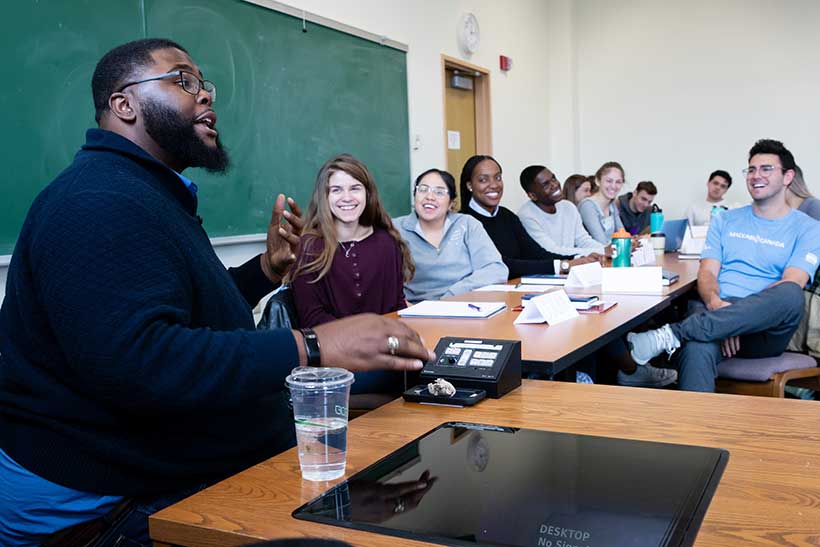
“I trust this person so much they babysit my cats,” says sociologist Tony Jack ’07, miming an imaginary professor gushing about a student, and the whole class laughs.
They’re here in Webster Hall for Leah Schmalzbauer’s sociology course “Unequal Childhoods: Race, Class and Gender in the United States” and they’ve been reading Jack’s buzzworthy new book. It’s called The Privileged Poor: How Elite Colleges Are Failing Disadvantaged Students, based on his study of diverse, low-income students at an unnamed university.
And that cat joke? It came in response to one of many questions today. In this case, Eugene Choi ’21 had asked Jack to spell out how social mobility works in higher education.
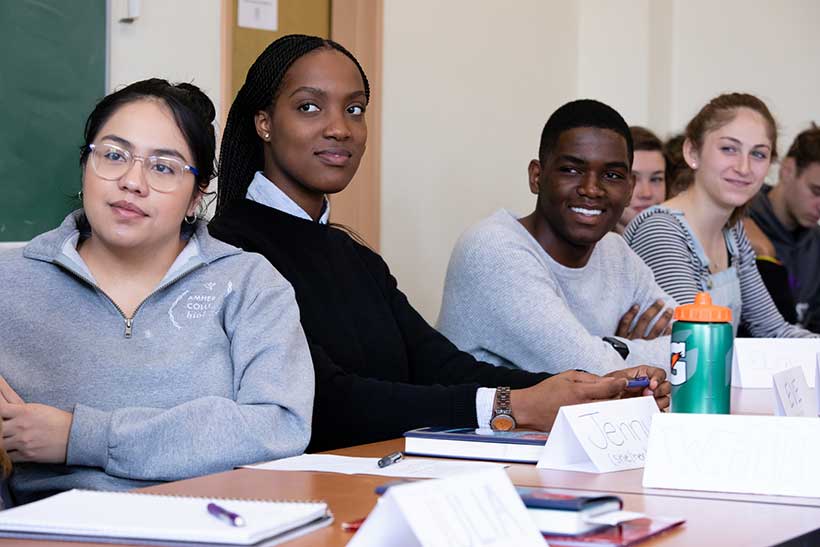
Jack began with the big picture, by mapping the vital but often opaque distinction between “the privileged poor”—students from low socioeconomic backgrounds who attended elite prep schools—versus “the doubly disadvantaged.” This second group grows up in low-income families, too. Yet these students arrive at college from often under-resourced public schools where, to cite one of Jack’s study subjects, the hallway lights never work.
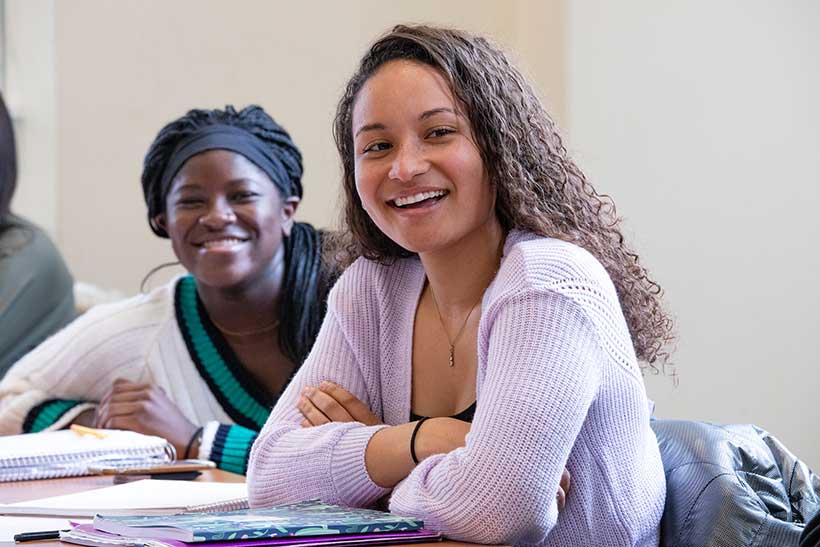
The “doubly” tag applies because, in addition to financial insecurity, these disadvantaged students lack the cultural capital of the privileged poor—not to mention that of their wealthier classmates.
“The privileged poor know how to build a network,” says Jack. “Prep schools are the extended trailer for the long movie of college. But the doubly disadvantaged take a semester or three to know what these others know—and those first years at college are so important.”
That lost time has serious implications, Jack told the sociology students, and used the example of a senior-year letter of recommendation. To get a great one from a professor, privileged students know you have to start building right away: go to office hours those first years and, later, the professor may ask you to join her research team, maybe eventually ask you to lead it—until, four years in, you’ve built such a rich relationship that, when she’s off at a conference, you become the go-to cat-sitter.
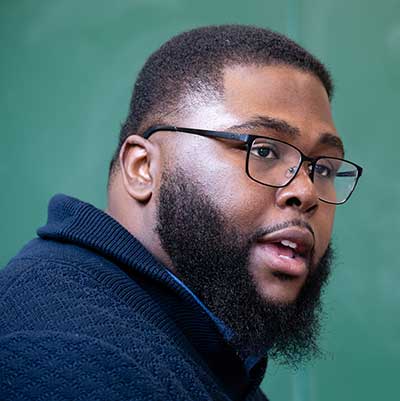
He also met with the staff of the admission office, where he was a diversity intern as an undergrad, giving big hugs to the officers he knew from back then. Jack took questions here too and talked of everything from issues of access in college admission today to his own high school journey to Amherst.
“It’s good for us to think about what lessons we can learn from Tony’s stories—and how stories like this can get us thinking about bringing the next generation of Tonys to campus,” said Matt McGann, dean of admission and financial aid. McGann later sent out a thankful tweet about Jack, calling him a “former diversity intern.” To which Jack tweeted a friendly correction: he was a “forever diversity intern.”
Back in Webster Hall, Rafaela Demerath ’21 asked Jack how colleges should be more understanding about the doubly disadvantaged. They need to realize, said Jack, that “the students who are the quietest are struggling the most.” When doubly disadvantaged students don’t feel welcome, they don’t avail themselves of opportunities and resources.
At Amherst, Jack could’ve been considered both privileged poor (he went to Gulliver Prep in his native Miami) and also doubly disadvantaged (he was there just his senior year). “When I was a student at Amherst, I worried about money more than my GPA,” said Jack, who back then successfully lobbied the College to leave the dining hall open for students, on calendar breaks, who couldn’t afford to go home or eat at restaurants in the interim. This practice is now firmly established here.
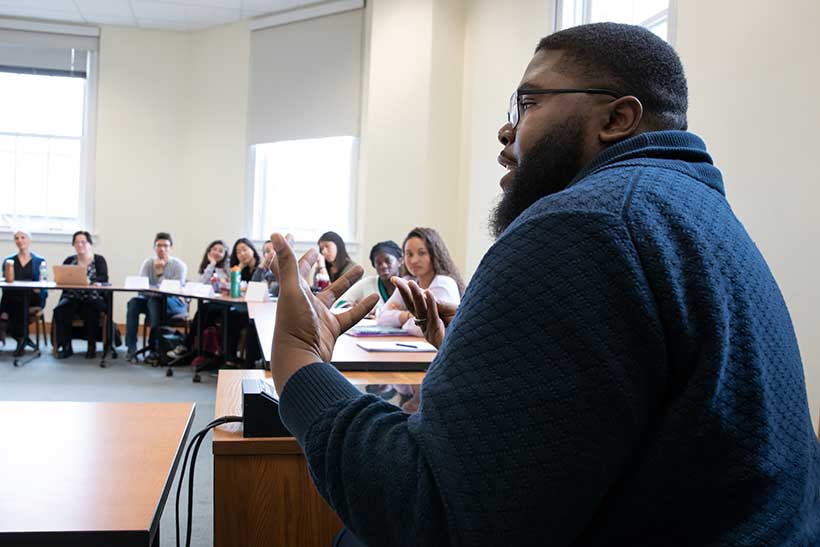
Manuel Rodriguez ’21 asked Jack how, during his undergrad years a decade back, he handled being a diversity intern in the admission office. Said Jack: “I had a rule that I did not want to sugarcoat the Amherst experience so that, three months into their experience, they’d say ‘You lied to me.’”
The students in the “Unequal Childhoods” class especially enjoyed when Jack got personal about his own first-year culture shock. He recalled that, when he started football practice at Amherst and heard a classmate mention “Martha’s Vineyard,” he thought it was one place and didn’t know it contained towns, until he figured out what “West Tisbury” and “Chilmark” meant. And when a friend’s family invited him to the Vineyard, he thought: “This is going to be an ethnographic field trip for me!”
Many more questions came his way, and his answers played off his own experience and his research to date. “I don’t want to say I have all the answers,” said Jack. “I want this book to ask more questions.”